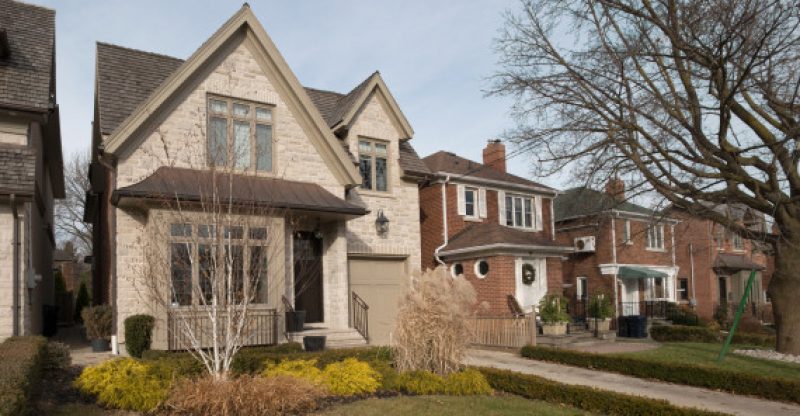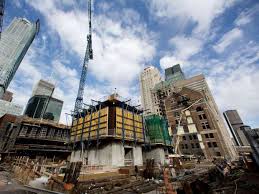Canadians Faith In Real Estate Fizzles As Toronto Sales Plunge
Less than a month ago, Canadians faith in the housing market spiraled to a new record-high mark. However, a month has now proved to be a really long time in real estate.
As recent evidence suggests a downturn in the city of Toronto, which happens to be Canada’s largest housing market, that faith is now diminishing.
Three weeks earlier, the Bloomberg Nanos consumer confidence barometer estimated the number of Canadians expecting house prices to rise within the next six months, to be 50.1 percent, which was the highest level recorded since the Nanos Research began the survey in 2008. That number has, however, now reduced to 45.5 percent.
The Chairman of the Nanos research, Nik Nanos, stated in the survey that, “Recent declines in consumer confidence scores were most likely to be driven by a cooling of real estate sentiment after hitting a high in early May”.
Toronto’s real estate market seems to have cooled to a notably large extent, following a mind-blowing start to the year, which saw the city’s house prices increase by 33 percent in March.
Sales of single-family homes declined by 26 percent in Toronto, the month after the new provincial rules were introduced, compared to the same period the previous year, per a data collated by brokerage Realosophy.
Some areas experienced more rapid declines than others. The Suburb of Richmond Hill saw the most sudden decrease of 61 percent.
Joanne Evans, Century 21 brokerage owner, told Bloomberg, “The frenzy is over – it’s over”. According to her, “Sanity is returning to the marketplace”.
The Housing market has been upset by the near-collapse of subprime mortgage lender Home Capital, and influenced by new federal mortgage rules which was introduced last fall, that require a “stress test” for borrowers of insured mortgages, says a few observers.
These observers are also of the opinion that buyers are hesitating, to see the effect the new province housing rules will have. Announced in April, the rules include a foreign homebuyers’ tax of 15 percent and extended rent controls.
Buyers are bailing out on their deposits
Buyers are now in a state of remorse, as the ambience of the market seems to have changed so suddenly and intensely.
Royal LePage realtor, Carissa Turnbull said in a statement to Bloomberg, “We are seeing people who paid those crazy prices over the last few months walking away from their deposits”. She went on to say, “They don’t want to close anymore”.
As some homeowners in the area rush to take advantage of the high house prices, new listings of houses have increased rapidly. Despite the decline in sales, listings went up 47 percent in the first half of May, in contrast to the same period a year earlier.
Some of that rapid increase is people re-listing their homes after failing to attract a bidding war, says real estate analyst, Ben Rabidoux.
Although still notably higher than it was the year before, the mean sale price dropped 3.3 percent in the first half of May, compared to a month earlier.
According to market experts, we are yet to experience the full effects of the housing rule changes and the crisis at Home Capital. Some, however, expect a complete collapse in the Greater Toronto housing market.
BMO senior economist, Sal Guatieri told Reuters, “Low interest rates are going to be oxygen … that keeps the fire going in the Toronto and B.C. housing markets – and that fire has spread to southern Ontario as well”.
He further stated that, “Clearly, without such low interest rates, we probably would not be seeing house prices rising as dramatically as they are”.





